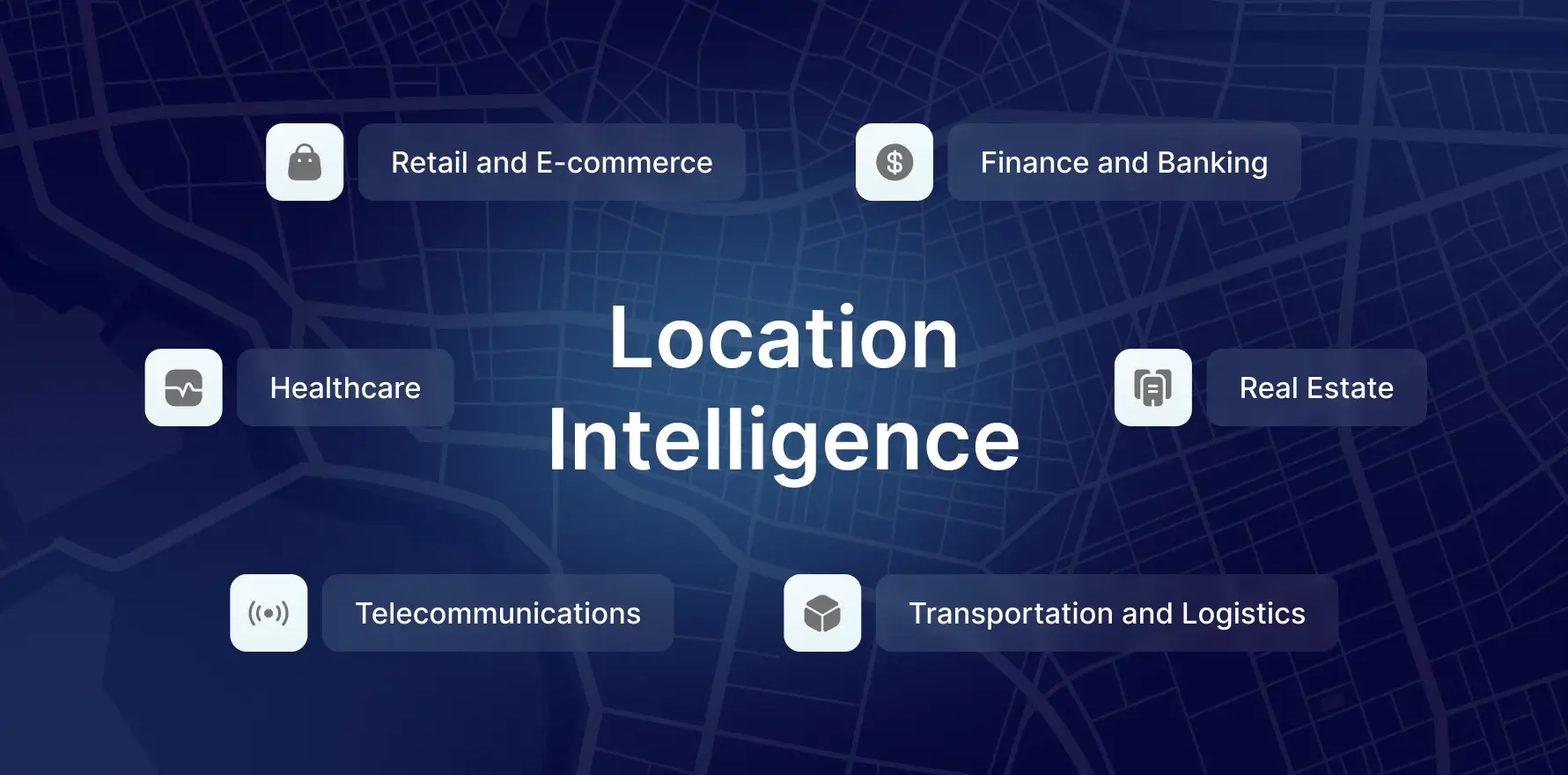Location intelligence Data is transforming businesses’ operations by providing valuable insights derived from location data. This data-driven approach enables organizations to make informed decisions, optimize operations, and enhance customer experiences.
This article will explore the key uses of location intelligence Data across various industries, highlighting how different sectors can leverage this powerful tool.
What is Location Intelligence Data?
Location intelligence Data is the process of analyzing location-based data to derive actionable insights. It involves using geographic information systems (GIS), spatial analysis, and data visualization techniques to understand patterns, relationships, and trends.
This information is crucial for businesses to make strategic decisions and improve operational efficiency.
Key Uses of Location Intelligence Data Across Industries
1) Retail and E-commerce
In retail and e-commerce, location intelligence Data is invaluable for store placement and site selection. Retailers can analyze foot traffic, demographics, and competitor locations to identify optimal sites for new stores.
This data-driven approach ensures that stores are placed in areas with the highest potential customer base. Personalized marketing is another significant application; retailers can deliver targeted promotions and advertisements by analyzing customer locations and movement patterns, enhancing customer engagement and driving sales.
Additionally, location intelligence data helps optimize inventory management by understanding regional demand and ensuring timely stock replenishment, reducing stockouts and overstock situations.
2) Real Estate
The real estate industry benefits immensely from location intelligence Data in property valuation. Real estate professionals can assess property values based on proximity to amenities, schools, transportation hubs, and other factors, allowing for accurate property valuations and informed investment decisions.
Site analysis for new projects is more effective when environmental factors, accessibility, and market demand are analyzed, ensuring the strategic placement of new developments.
Moreover, market analysis driven by location-based data provides insights into market trends and customer preferences, which is crucial for developing effective marketing strategies and targeting potential buyers.
3) Transportation and Logistics
In transportation and logistics, route optimization is a key use of location intelligence. Logistics companies can plan efficient delivery routes, reducing fuel consumption, travel time, and operational costs. Real-time traffic data aids in avoiding congested routes, ensuring timely deliveries.
Fleet management is enhanced through real-time vehicle tracking, improving overall efficiency and reducing maintenance costs. Location data also plays a crucial role in supply chain optimization by monitoring the movement of goods, identifying bottlenecks, and ensuring timely deliveries, thereby improving supply chain efficiency and reducing operational disruptions.
4) Healthcare
Healthcare providers use location intelligence data to effectively allocate resources by understanding patient distribution and demand patterns.
This ensures that healthcare facilities are adequately staffed and equipped. Location data is essential during health crises for tracking the spread of diseases, planning vaccination campaigns, and implementing targeted interventions.
In emergency response, location intelligence enables faster response times by identifying the nearest available resources and optimizing routes for emergency vehicles, improving patient outcomes.
5) Telecommunications
Telecom companies leverage location intelligence data for network optimization. They analyze location data to identify areas with high demand and improve coverage, ensuring better service quality and customer satisfaction.
Location intelligence also enhances customer service by providing insights into customer locations and addressing service issues promptly.
In infrastructure planning, location data helps telecom providers plan new projects, ensuring optimal placement of cell towers and other facilities, reducing infrastructure costs, and improving network performance.
6) Finance and Banking
Financial institutions use location intelligence data to detect fraudulent activities by identifying unusual transaction patterns based on location. This helps prevent financial fraud and protect customer accounts.
Market analysis driven by location-based data allows banks to understand customer behavior and preferences, enabling better market segmentation and product offerings. This enhances customer targeting and marketing effectiveness.
Additionally, location intelligence helps optimize the placement of bank branches and ATMs based on customer demand and accessibility, improving customer convenience and service efficiency.
7) Government and Public Sector
Governments use location intelligence data for urban planning, infrastructure development, and resource allocation by analyzing population density and movement patterns. This ensures sustainable urban development and efficient resource utilization.
Location data is crucial in disaster management, as it helps identify vulnerable areas, plan evacuation routes, coordinate relief efforts, and improve disaster preparedness and response.
Law enforcement agencies also use location intelligence to improve public safety. By analyzing crime patterns and deploying resources effectively, they enhance crime prevention and community safety.
Conclusion
Location intelligence data is a powerful tool that provides actionable insights from location data, driving better decision-making, operational efficiency, and customer engagement across various industries. From retail and real estate to transportation and healthcare, location intelligence applications are vast and growing.
As technology advances and the availability of location data increases, the potential for location intelligence will continue to expand, offering new opportunities and challenges.
Understanding and leveraging location intelligence data and key use cases is essential for staying competitive in today’s data-driven world.




